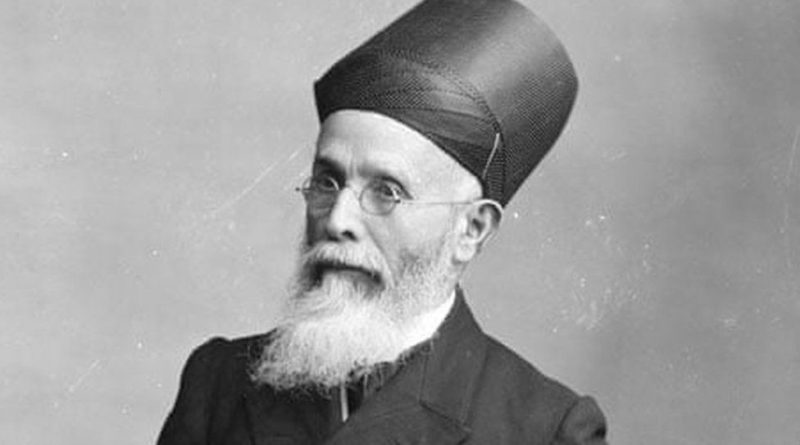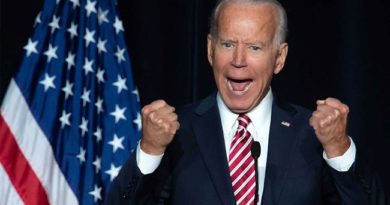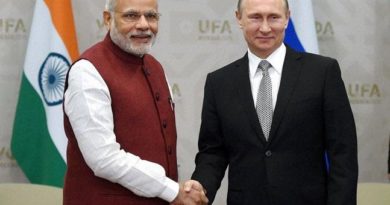Dadabhai Naoroji: First Asian to be elected to UK Parliament
In 1892, an Indian was elected to the UK Parliament. How did this happen? What is the significance of this historical event in today’s era?
Dadabhai Naoroji (1825–1917) is not only recognized that he was the first person in Asia to reach the House of Commons in Britain, he was the most prominent leader of India before Mahatma Gandhi. Naoroji was also known around the world as an opponent of casteism and imperialism.
It is again important to remember Dadabhai amidst many new crises that have arisen around the world.
His life is a witness to how progressive political power is like a ray of light even in the dark chapters of history.
Naoroji was born in a poor family in Bombay. He was then part of the new experiment of free public schooling. He believed that the service of the people is the way to repay the moral debt of their education.
From a young age, he was associated with progressive ideas.
Emphasis on girls’ education
In the 1840s, she opened a school for girls, which led to opposition from conservative men. But he had an amazing ability to put his point in the right way and turn the wind.
Within five years, Bombay’s girls’ school started appearing full of female students. Naoroji’s intentions became stronger and he started demanding gender equality. Naoroji said that Indians would one day understand that “women have as much right to exercise their rights, facilities and duties in the world as a man.”
Gradually, Naoroji helped change people’s opinion about women’s education in India.
Challenged the beliefs of the British Empire
In 1855, Naoroji arrived in Britain for the first time. He was shocked to see the prosperity there. He started trying to understand why his country is so poor and backward.
It was from here that Naoroji’s two-decade-long economic analysis began, in which he challenged the British Empire’s recognition that imperialism is the cause of prosperity in the colonized countries.
He proved from his studies that the truth is indeed the opposite of this belief.
According to him, the British rule was “sweeping the blood of India” towards death and creating a terrible famine. This angered many Britishers accusing them of treason and disloyalty. He could not believe that a person living in a colony was making such claims in public.
However, people with views against imperialism benefitted from the new concrete ideas of Naoroji.
His views on how “money went out” of the colonies due to imperialism also exposed European socialists, American progressives such as William Jennings Bryan and possibly Karl Marx.
Way to reach Britain’s Parliament
India’s poverty was behind Naoroji’s ambition to reach the British Parliament.
Coming from the British colony, he could stand for selection in Parliament, as long as he did so while staying in Britain.
Following the model of some Irish nationalists, he believed that India should demand political change from within the halls of power in Westminster.
There was no such option in India. Therefore, in 1886, he launched his first campaign from Holborn. They were defeated badly.
But Naoroji did not give up. Over the next few years, he formed an alliance between Indian nationalism and progressive movements in Britain. Naoroji also became a vocal supporter of women’s suffrage.
He supported Ireland’s domestic rule and also reached close to standing for parliament from Ireland. He linked himself with labor and socialism, criticized capitalism and called for workers’ rights.
Naoroji had succeeded in convincing a large section of Britain that India needed immediate reforms, just as women had the right to vote, or the rule of workers to work for eight hours. They received letters of support from the workers, their leaders, agriculturalists, feminists and clergy.
But not everyone was happy with a future Indian MP in Britain. Many people called him “carpetbagger” and “hotnot”.
Even the British Prime Minister, Lord Salisbury, described Naoroji as a “black man” who was not entitled to the British vote.
But Naoroji managed to reach out to as many votes as he needed. In 1892, Naoroji won the election from Central Finsbury, London, with just five votes. (After this he came to be known as Dadabhai Narrow Majority)
MP Dadabhai spoke in Parliament without losing time
He said that British rule is a “wicked” force which has placed its fellow Indians in a slave-like situation. He wanted to bring the law to change the rules and give power in the hands of Indians.
But his efforts failed. Most MPs ignored his demand, 1895 re-election and he lost.
Hope not left in bad times
This was the worst time of Naoroji’s life
In the late 1890s and early 1900s, British rule became more brutal. Lakhs of people died in the subcontinent due to famine and epidemics, with many Indian nationalists believing that their efforts had reached the final juncture.
But Naoroji did not give up hope
They increased their demands to more progressive constituencies, early workers, Took together anti-American imperialists, African-Americans and black British agitators. He declared that India needed Swaraj and this was the way to stop the money going out of the country.
He told British Prime Minister Henry Campbell-Bannerman that this is the way to rectify the mistakes of his imperialism.
These words and thoughts started circulating around the world. They were taken up by the socialists of Europe, the African-American press, the Indians, and the people of South Africa led by Gandhi.
Swaraj was a bold demand. How can the weak take their authority from the most powerful empire in human history?
Naoroji kept up with his optimism and never backward trend. In his last speech at the age of 81, he acknowledged his political failures. He said “Despair is enough to break any heart and despair. Even, I am afraid, I am afraid of rebelling.”
However, perseverance in thoughts, determination and belief in progressive ideas were the right choice.
He told the members of the Indian National Congress, “As we move forward, we can adopt paths that are appropriate at that point, but we have to stick to the end.”
Importance of Dadabhai’s ideas in this era
What do such words say about today’s political debates?
Today, a century later, Naoroji’s sentiments may seem too simple — a bizarre constructivism in an era of populism, egalitarian authoritarianism and sharp partisanship.
Our era is very different. Presently the British Parliament is also an Asian MP who has a vague view on imperial history and a stubborn attitude towards Brexit.
India is in the grip of Hindu nationalism which is completely against its founding principles – principles which Naoroji helped to shape.
It is not possible to guess what Naoroji, who carried forward his political agenda through studies, his opinion in this era of fake news and factless information.
Yet Naoroji’s perseverance, faith in effort and progress still show us the way forward. When Naoroji publicly started demanding Swaraj in the 1900s, he believed that it would take at least 50 to 100 years to get it.
Britain was at its peak and most Indians were too poor and backward to talk about ideas like Swaraj.
Naoroji would be shocked to know that his grandson lived in an independent India and witnessed the fall of the British Empire.
It provides many important lessons – empires collapse, autocratic rule ends, public opinion suddenly changes. Naoroji inspires us to take a long-term view. He urges us to maintain faith in progressive ideals and to persevere.
Perseverance and steely resolve can give the most unexpected results – more unexpected than winning an Indian election to the British Parliament a century ago.




